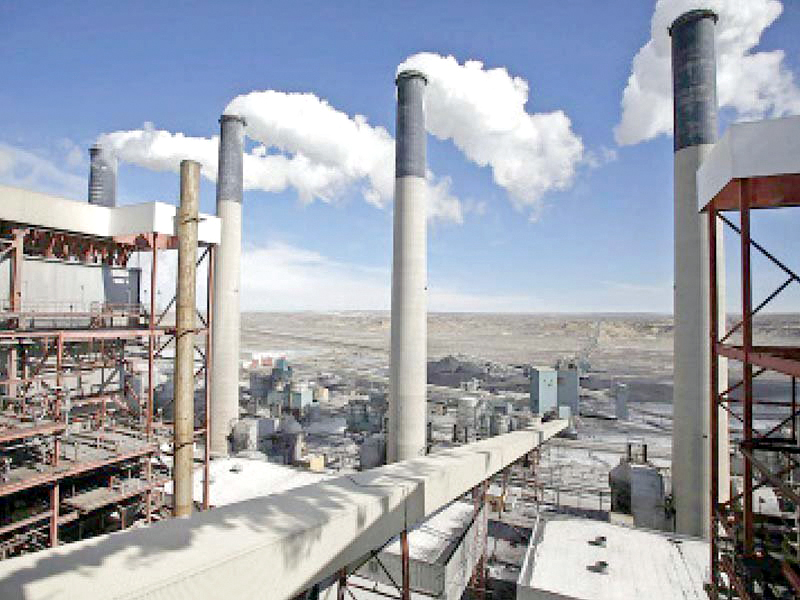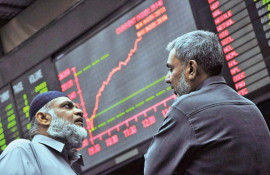
The National Accountability Bureau (NAB) has finally swung into action over expensive liquefied natural gas (LNG) deals that had put burden worth multi-million dollars on the consumers.
It had started an inquiry into suspicious LNG deals at higher rates by Pakistan LNG Limited (PLL) that doled out millions of dollars into pockets of traders. Meanwhile, PLL also exploited exemption of PPRA rules that the government had granted for six cargoes.
During the last two bids, PLL scrapped LNG tenders and after just a few days, accepted bids from the bidders at higher rates. PLL had cancelled a bid of Vitol of LNG cargo at $11.66 per mmbtu on June 2, 2021. PLL cancelled this tender and re-invited bids, then, a few days later accepted a bid from the same company at $12.7 per mmbtu with a difference of $1.11 putting additional burden of Rs540million on the consumers.
In another bidding round, PLL had invited eight bids for delivery for September and October. It had received four bids from Qatar Petroleum at $13.79 to $13.99 per mmbtu. Other bids touched $16 per mmbtu. However, PLL cancelled the same tender and re-invited bids a few days later. In response, it accepted four spot LNG bids ranging in between $15.2 to $15.5 per mmbtu that was the higher bid since the beginning of LNG imports in 2015.
Through this PLL gave undue benefit of millions of dollars due to manipulation of PPRA rules at the cost of the consumers. Sources said that NAB has written a letter to Government Holdings (Private) Limited (GHPL) CEO and sought record of one foreign firm regarding procurement of LNG. PLL is a subsidiary of GHPL.
They say that officials, dealing with LNG procurement, at PLL were mainly appointed on a political basis during tenure of Pakistan Muslim League-Nawaz (PML-N). They were now dealing with suspicious deals of LNG that had put multimillion dollars burden on the consumers. In the letter, NAB raised questions how many contracts it had awarded to one foreign firm since its inception.
It further asked what procedure the PLL had adopted to award LNG contracts. It also sought details regarding amount involved in the contracts. Sources said that affairs of PLL have deteriorated due to appointments at key posts on a political basis. They have also been involved in mismanagement that led to higher cost of LNG
The PLL management failed to make timely LNG import plan that led to higher imports of LNG, the price of which was being paid by the consumers. Moreover, the higher cost of LNG also resulted in cost of circular debt that increased over Rs100 billion. The government had inducted LNG for domestic consumers in winter season. But there was no mechanism to recover the cost from the consumers.
Secondly, the consumers had paid around $99 million capacity payments during the last three years to terminal operators as PLL had been unable to mature all six cargoes in a month. The government had decided in July 2020 to import LNG by the private sector to reduce financial risk on government and LNG imports at competitive rates. However, PLL had been a major obstacle in LNG imports by private sector in a bid to maintain its monopoly.
It joined hands with Sui Northern Gas Pipelines (SNGPL) and did not award the idle capacity to the private sector despite the policy being in place. Hence, the private sector was unable to import a single LNG ship since the government’s approval over one year back.
No legal framework for LNG business
At present, there is no legal framework between PLL, SNGPL and customers to distribute and market LNG product. They are operating without any legal agreement. PLL and SNGPL have no gas supply agreement, however, they continue to do business. Due to lack of a framework, there is no LNG firm demand plan in the country.
Officials said that NAB will also investigate how PLL and other utilities had caused problems in way of utilising full capacity of the LNG terminal. Utilisation of full capacity of LNG terminal could help reduce tolling fee for the consumers. This will ultimate result in reducing tariff for the gas consumers, officials said, adding that the Oil and Gas Regulatory Authority (Ogra) should also take action against the working these entities without any legal framework.
The role of Ogra is also to protect the consumers. However, it has been silent over the expensive LNG deals. In addition to NAB, the Auditor General of Pakistan had also pointed out LNG deals at higher rates. The Public Accounts Committee has also summoned officials to brief on the issue.
NAB version
When contacted, a NAB spokesperson told The Express Tribune that NAB has totally rejected and denied that no NAB team has visited PLL and the Petroleum Division to question officials regarding LNG spot deals at higher rates as no inquiry is under process in NAB related to LNG spot deals at higher deals. Therefore asking any question from any official regarding LNG spot deals at higher rates does not arise. Contrary to the allegation, the Ministry of Energy (Power Division) has appreciated NAB for its valuable contribution to FATA Committee to complete their work within the deadlines.
PLL version
To a question about PLL scrapping a cheaper LNG bid to only accept a higher bid a few days later, the official said, “The spot price index JKM dropped from $14.3 per mmbtu on July 6, 2021 to $12.14 per mmbtu on July 8, 2021 (estimated per cargo difference of $7 million). On July 8, 2021, S&P Platts reported in its weekly forecast ‘JKM falls on weaker TTF, expected to fall further’.
“Considering the downward trend of the prices in the market, PLL decided not to award bids of QP Trading, Total, Gunvor and BB Energy. Vitol’s bid was not accepted as it was a single bid and was not reflective of the prevailing market conditions. As per PPRA rules, single bid can only be accepted in case financial conformance in terms of rate reasonability. However, during the end of July 2021, spot price rose to unprecedented high levels due to a variety of factors.
The company official said that among some reasons for the hike were reduced Russian and Norwegian pipeline flows into Europe, Europe’s gas storage was at lower capacity as compared to previous years’ inventory levels primarily due to high consumption of gas due to extremely cold winter, maintenance on Nordstream 1 pipeline (Russia to Germany) between July 13 to 23 slowed the rebuild of inventories in Germany and neighboring countries, and there was strong demand in Asia (China, Japan and Korea) due to hot weather.
“Considering this quick price rebound, retendered for four (04) September 2021 spot cargoes. For first two delivery windows, PLL was able to receive lower prices than previous tender. However, for last two delivery windows, the received prices were higher. It is pertinent to mention that prices of PLL’s spot purchases of September 2021 cargoes range in between $15.1 to $15.4 whereas spot price for September 2021 is now at $17.1.”
The official further added that PLL saved approximately $30 million for March 2021 spot cargoes by not awarding the received bids and retendering because spot prices had dropped significantly. “This saving is much bigger than the impact of retender for September 2021 spot cargoes.”
Regarding utilization of LNG terminal by private sector, he said that PLL sought applications twice, through advertisement in national newspaper, for allocation of terminal capacity.
“However, first process was scrapped as none of the applicants succeeded in providing the necessary documents. Whereas for second process, none of the applicants applied for February and March 2021 when there was availability of capacity. From April 2021 onwards, terminal-2 is operating at full capacity. Based on demand trend, full terminal utilisation is expected to continue for months to come.”
Published in The Express Tribune, August 22nd, 2021.
Like Business on Facebook, follow @TribuneBiz on Twitter to stay informed and join in the conversation.



1732266251-0/Josh-Brolin-(1)1732266251-0-165x106.webp)
1732266343-0/BeFunky-collage-(82)1732266343-0-165x106.webp)













COMMENTS
Comments are moderated and generally will be posted if they are on-topic and not abusive.
For more information, please see our Comments FAQ